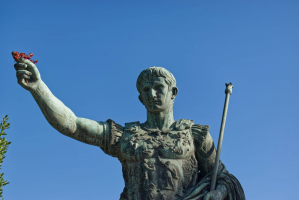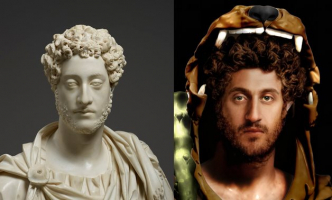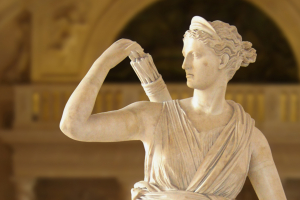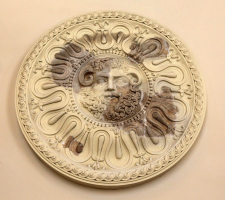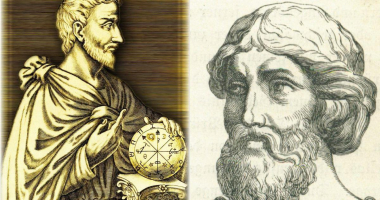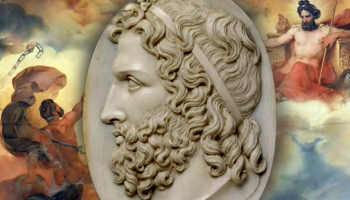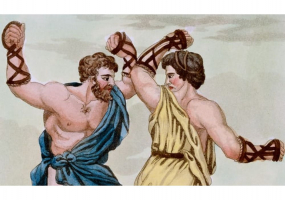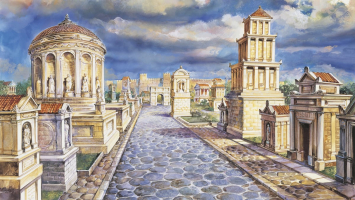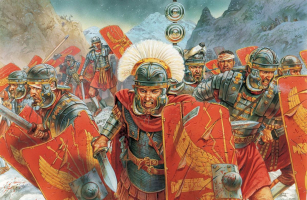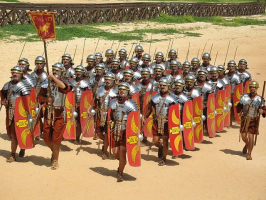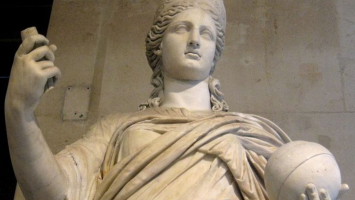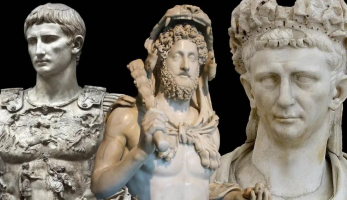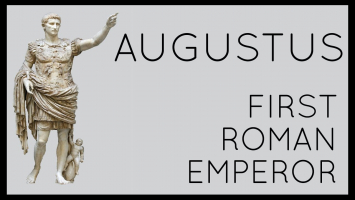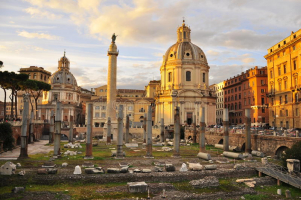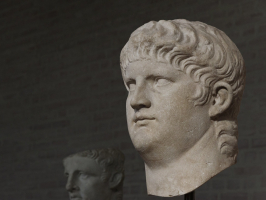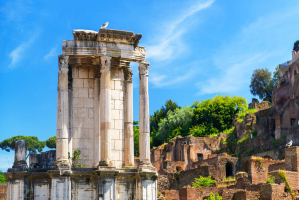Top 10 Famous Roman Philosophers
From its precursor, the ancient Greek philosophy, which is considered to be the origin of philosophy itself, Roman philosophy historically inherited many of ... read more...its principles, directives, exhortations, and observations. The top ten philosophers who translated the fundamental ideas of Greek philosophy into what is now known as the famous Roman philosophers are listed in this article.
-
Hypatia (370 - 415 CE), one of the most important Roman philosophers, should not be disregarded. Hypatia was a talented mathematician and astronomer who focused on knowledge and science - viewed at the time as a type of philosophy - and is regarded as the best female academic to have lived in Alexandria.
Hypatia was a self-made philosopher who continued to teach Neoplatonism, a branch of Platonic philosophy that integrates mysticism and holds that reality emanates from "The One," in addition to her contributions to science. Many people attended her public lectures, which cemented her reputation as a notable philosopher of her time. Hypatia took on the task of instructing students in the Neo-Platonic philosophies advanced by Plotinus and Iamblichus. Hypatia was the daughter of Theon, a great mathematician and philosopher. The former founded Neoplatonic thought, while the latter, an Arab, was in charge of the Syrian movement.She introduced the idea of knowledge and science at a time when Western traditions were rife with Pagans and Paganism.
Compared to other schools of Neoplatonism, her philosophy was less mystical and paganic and more academic and scientific in its interests. She later passed away as Christians and Pagans were engaged in a bloody battle.
Time: 370 - 415
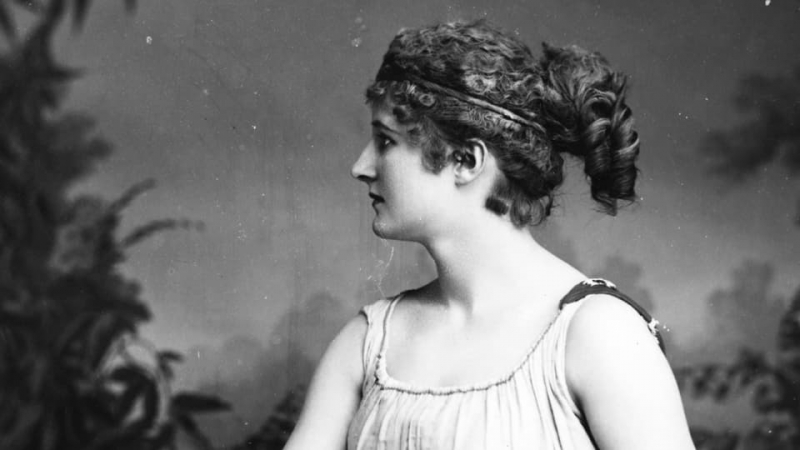
Photo: www.srf.ch 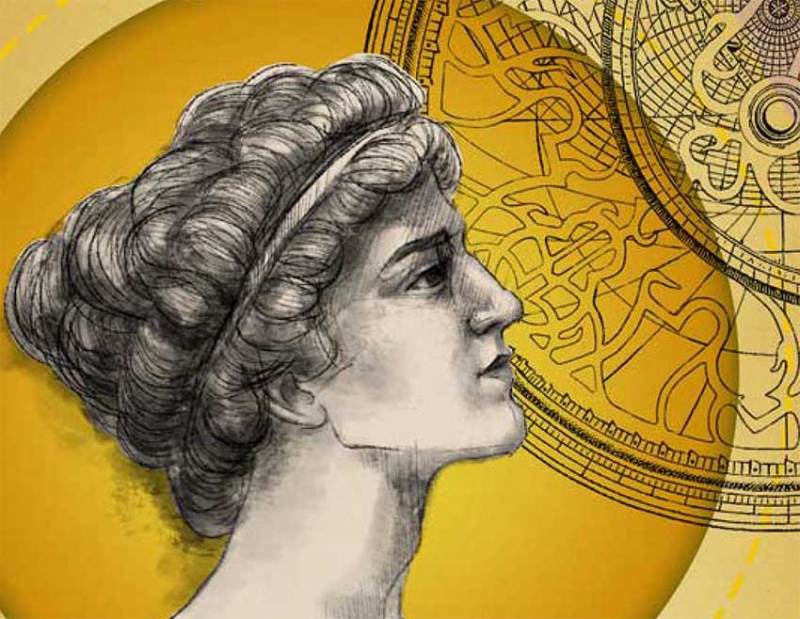
Photo: AprendeInglesToday -
Boethius was a statesman, philosopher, and scholar from Rome who practiced Christianity. He rose to the heights of literature with his groundbreaking work on Neo-Platonism, De Consolatione Philosophiae (Consolation of Philosophy). He claims in his book that the sacred union of knowledge and Divine Love is the source of genuine happiness.
His scholastic endeavors included the full works of Plato with additional commentary, notes, and glosses, as well as the translation of Aristotle's logic from Greek into Latin. Convicted on further accusations of using magic and sacrilege in addition to openly supporting senator Albinus. Consolation of Philosophy, most illustrious and most intimate work, was written while he was imprisoned. His intellectual justifications were Platonism with a dash of literary beauty.
Anyone who has read the Consolation of Philosophy, Boethius' most well-known work, is familiar with his last years. He agreed to take the position of "Master of Offices," one of Theoderic's highest ranking officials, but he rapidly developed a bad reputation at court, most likely because he exposed their wrongdoing. He was imprisoned and executed (perhaps in 526) after being charged with treason and using magic, but not before he had the chance to complete his literary masterwork. As a result, his sole chance was to await his reward on the other side of death after his execution in 524.
Time: 470/75 - 524
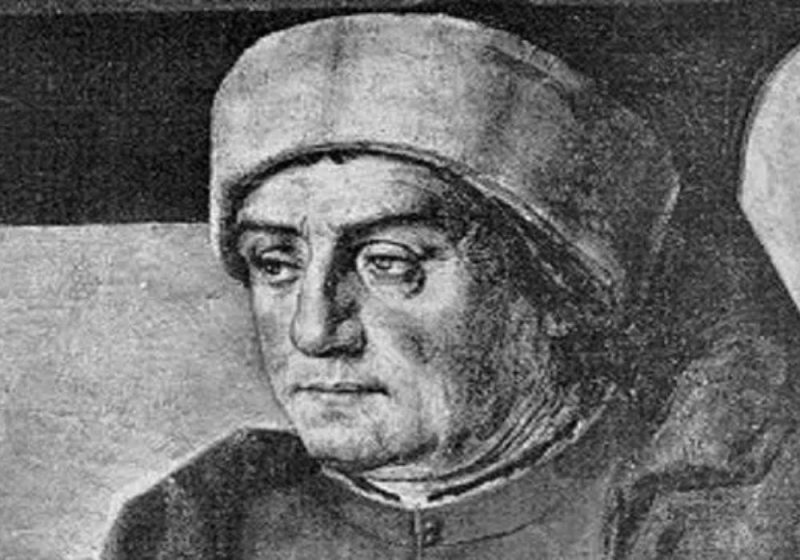
Photo: Famousbio 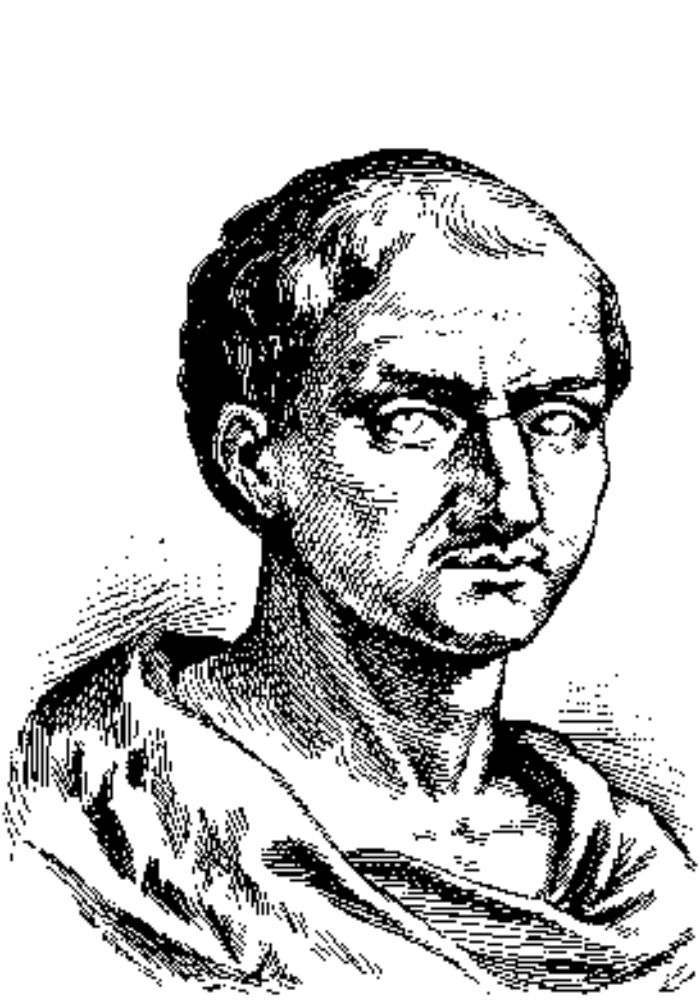
Photo: Wikipedia -
Titus or Lucretius, one of the underappreciated Roman poets and philosophers, is Lucretius Carus. He was a fervent disciple of Epicurius, but little else is known about him. De Rerum Natura (On the Nature of Things), a dactylic philosophical poem describing the essential principles and philosophy of Epicureanism, is the only piece of his writing that has survived in our memory. The only thing we know about him is that he was Gaius Marius's friend or client, to whom his poem was composed and dedicated.
His poetry explores all phenomena, both tangible and ethereal, including the mind and soul, senses, touch, thoughts, man and woman, reproduction, and global evolution. He ventured beyond earthly lands and investigated cosmic phenomena. Venus is honored in the book's prologue and referred to as the Mother of Nature. He continues by extensively exploring days, nights, seasons, thunder, and lightning before abruptly finishing his epic with the general plague of Athens in six books.
Regardless, Lucretius had a big impact on the humanism construction efforts of many Enlightenment leaders. He is also credited with creating the three-age system, which CJ Thompson formalized in 1834.
Time: BC 88 - BC 55
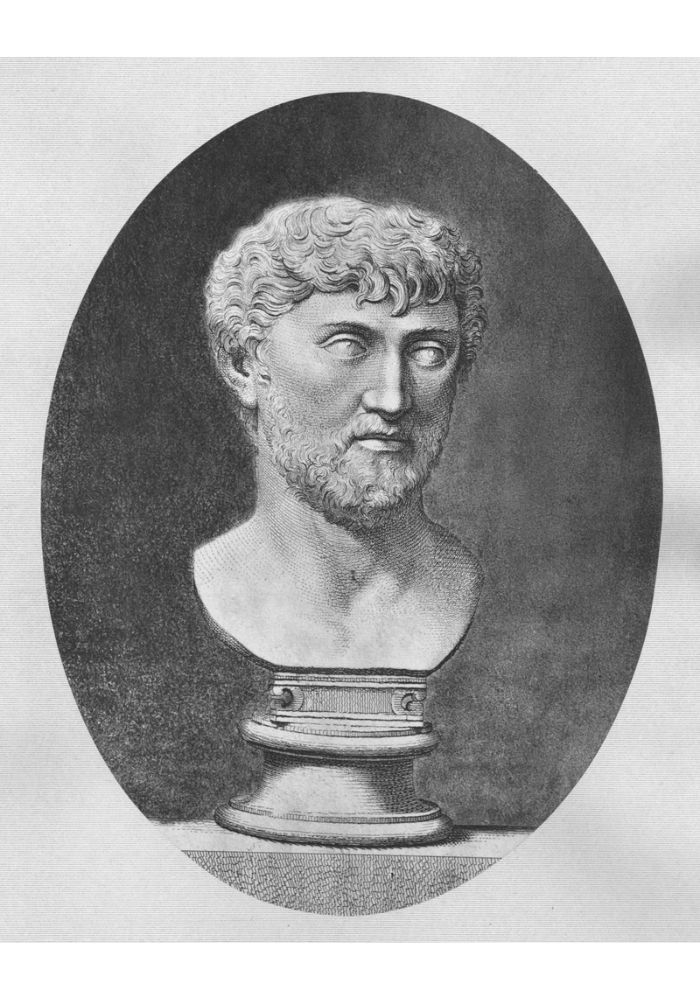
Photo: Wikipedia 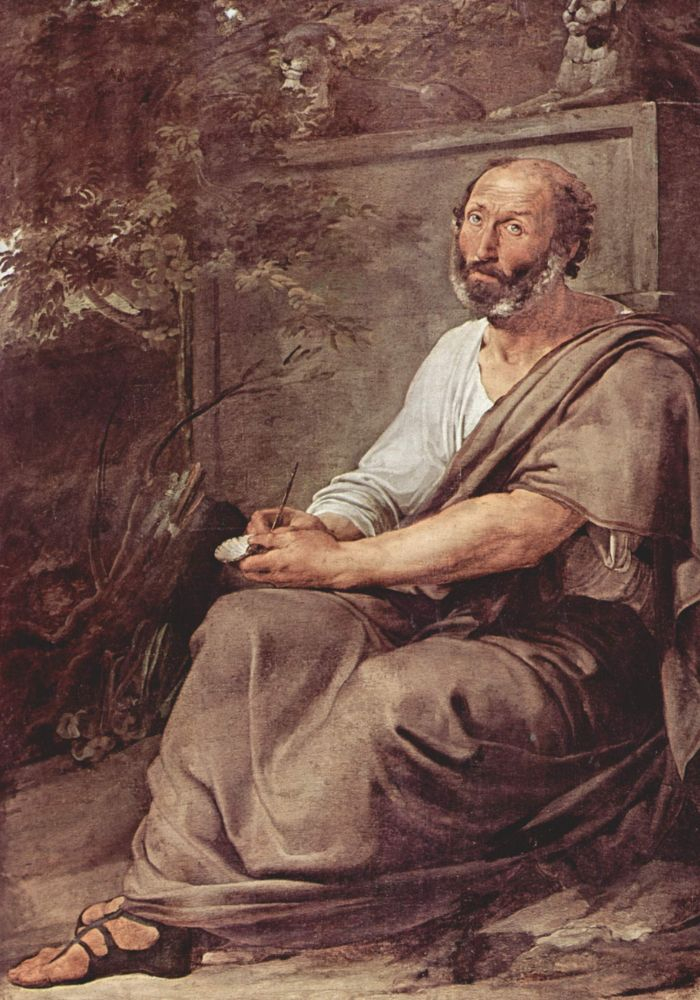
Photo: Literatura popoarelor -
Pliny was raised in Rome after moving there to finish his schooling. He was born into a wealthy family in Como, Italy and he is one of the famous Roman philosophers. Even if remnants of his earlier conversations are still around, only Natural History is a well-written compilation. The book explores a variety of natural phenomena' states.
The book is divided into 37 parts, each of which describes the author's views on many worldwide subjects, starting with cosmology and astronomy (Book II), humans (Book VII), reptiles AND mammals (Book VIII), fish and other marine animals (Book IX), birds (Book X), and insects (Book X) (XI). While some sections of the book report passages from Aristotle's logic, Pliny frequently conducted his own independent research. So, compiling his observations and research on many disciplines of botany, he created a thorough book that was available in Rome and throughout Italy.
In hindsight, Pliny's effect can be attributed to his ability to methodically connect a variety of previously unrelated facts, his keen eye for details that others might have missed, and his readable narrative, which he used to connect both factual and fictitious data. Pliny's faith in magic and superstition, together with spurious assertions, urban legends, and exaggerations, influenced scientific and medical philosophy in later decades.
Time: AD 23 - 79
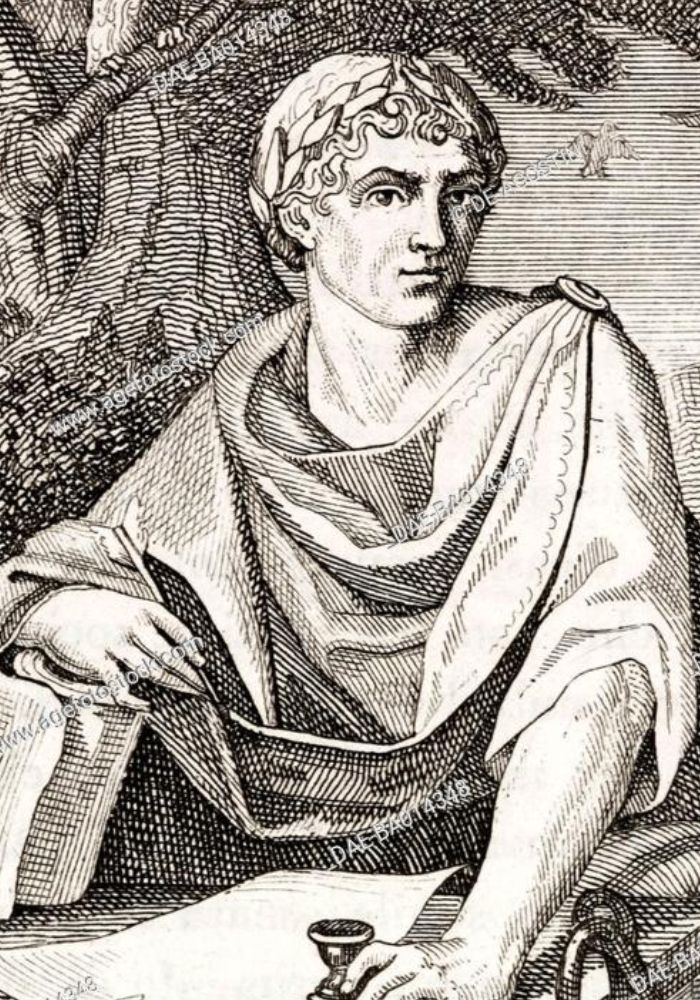
Photo: agefotostock 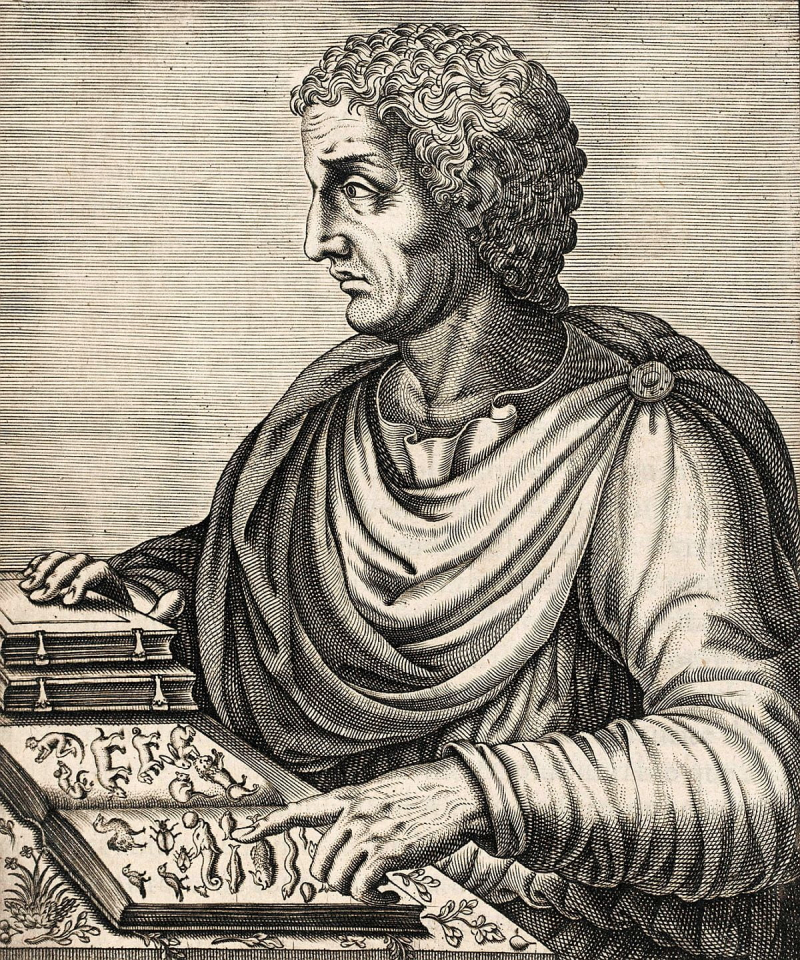
Photo: Imperium Romanum -
A student of the Neoplatonic philosopher Plotinus was Porphyry of Tyre. The most important of all of his other accomplishments is the posthumous publication of his instructor Plotinus' manuscript, Enneads. Malchus was born in Lebanon (formerly Phoenicia) during 233-234 AD. Later, he went to Rome and met his teacher there.
He has written about global subjects, to speak of his unique works. The Middle Ages saw the common use of Isagoge or Introduction, which was translated into Latin and Arabic. Furthermore, the books Against the Christians and Philosophy from Oracles infuriated and divided Christians. In addition to this, his most well-known book is Introduction to Categories, where he quickly explains Aristotle's principles.
He argued that Christianity was overly elevated and attacked Christianity while defending paganism. He despised Christianity and the impersonal God at its core. He held that one could only become one with God by ingesting the union of wisdom and reason. In his book, On the Impropriety of Killing Living Beings for Food, he promoted vegetarianism and explored the effects of consuming animal meat. In addition to the book on Plotinus, he also wrote a book called The Life of Pythagoras. Various philosophers and mathematicians whose lives, hardships, and accomplishments may have been lost to history have been preserved by him.
Time: AD 233 - 305
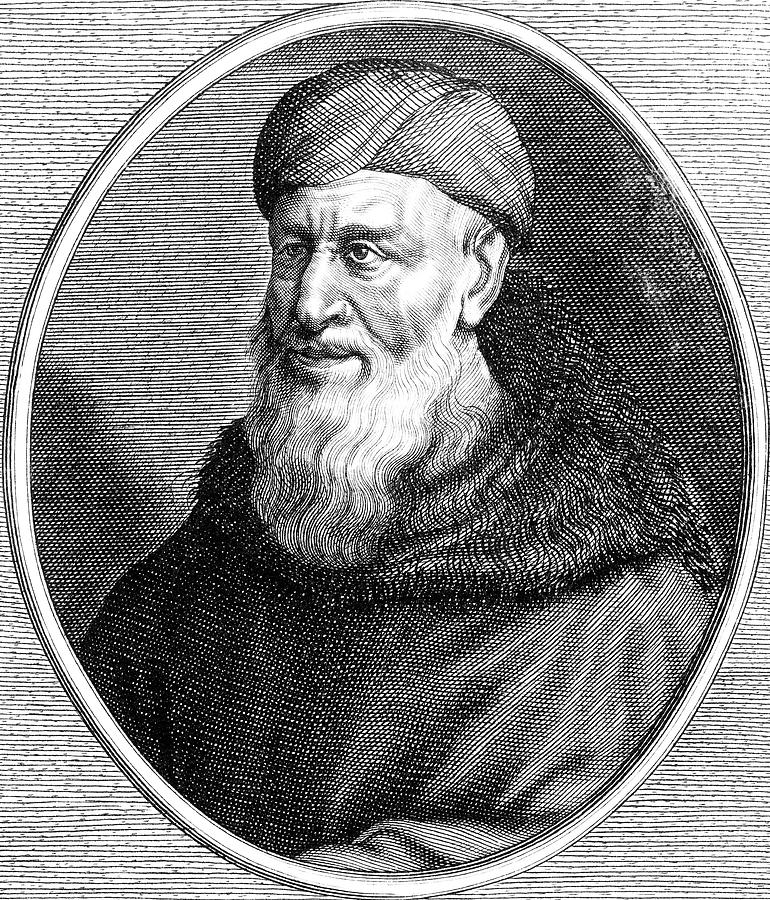
Photo: Pixels 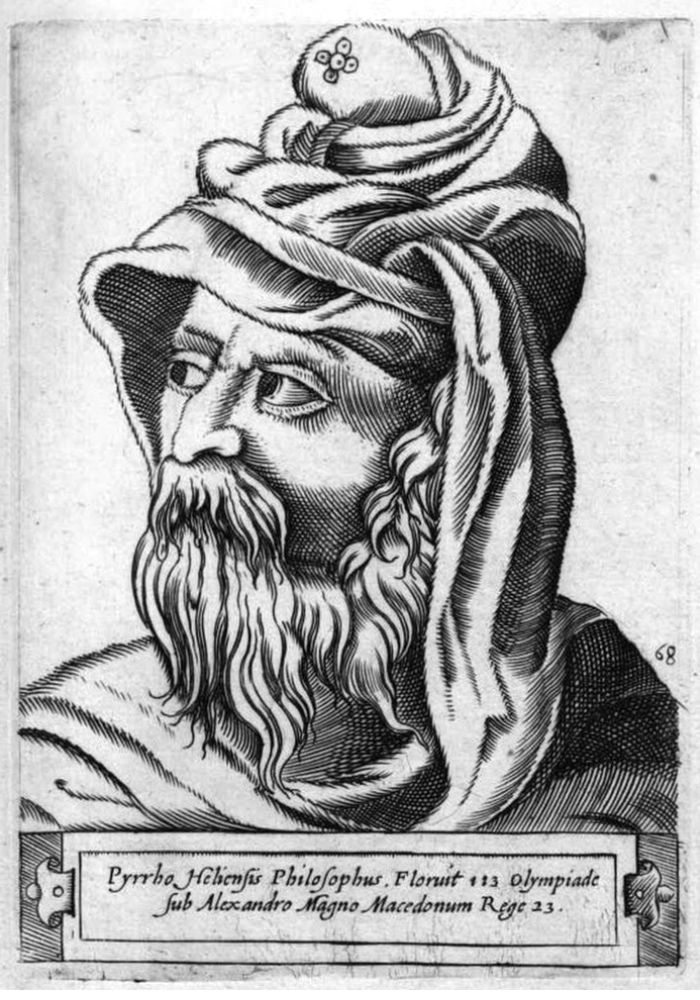
Photo: World History Encyclopedia -
The founder of Neo-Platonism was the famous Roman philosophers. His biography only uses a few publications written by his followers as its primary sources. Among them are books like Enneads and The Life of Plotinus. Unfortunately, there is no information known about his life, yet the materials that are still in existence claim that he was friends with Porphyry for six years. As a result, he has been largely ignorant of history.
Plotinus was a committed educator who later in life frequently turned to literature for solace. His congregation was exactly like the traditional education that was in use at the time. It was customary for him to engage in actions like expressing personal opinions about the concepts put forward by earlier philosophers. In a similar manner, he entertained questions and discussions on numerous subjects and explored them until he offered a firm response.
He believed in magic and the prophecies of the constellations, just like the majority of philosophers of late antiquity. His final advice was to aspire to become inherently Divine, which is consistent with his interest in the occult.
Time: 205 - 270
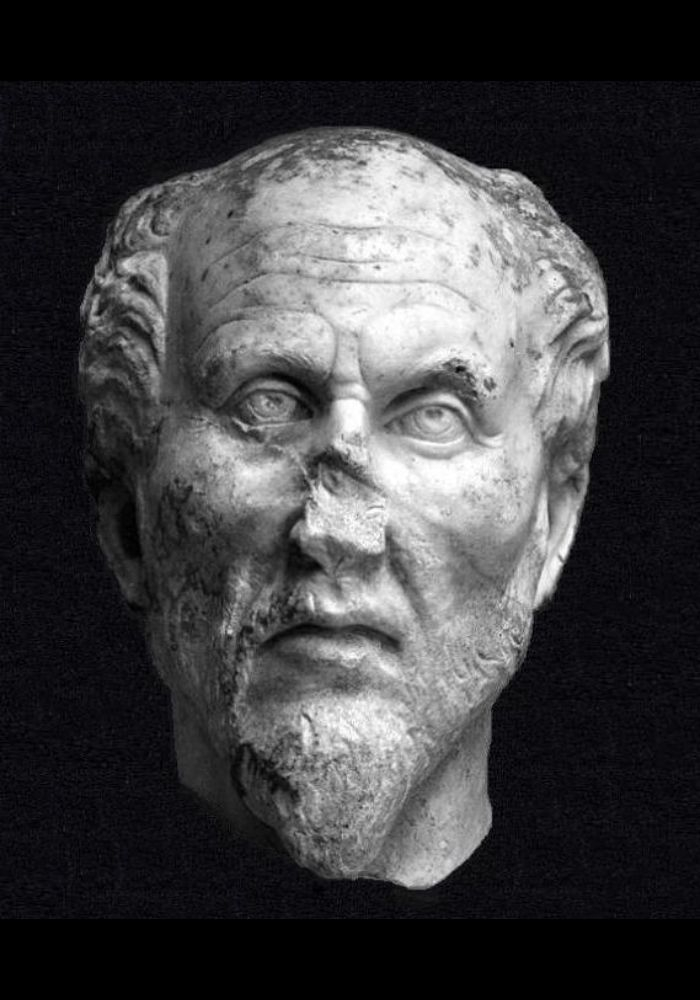
Photo: Wikipedia 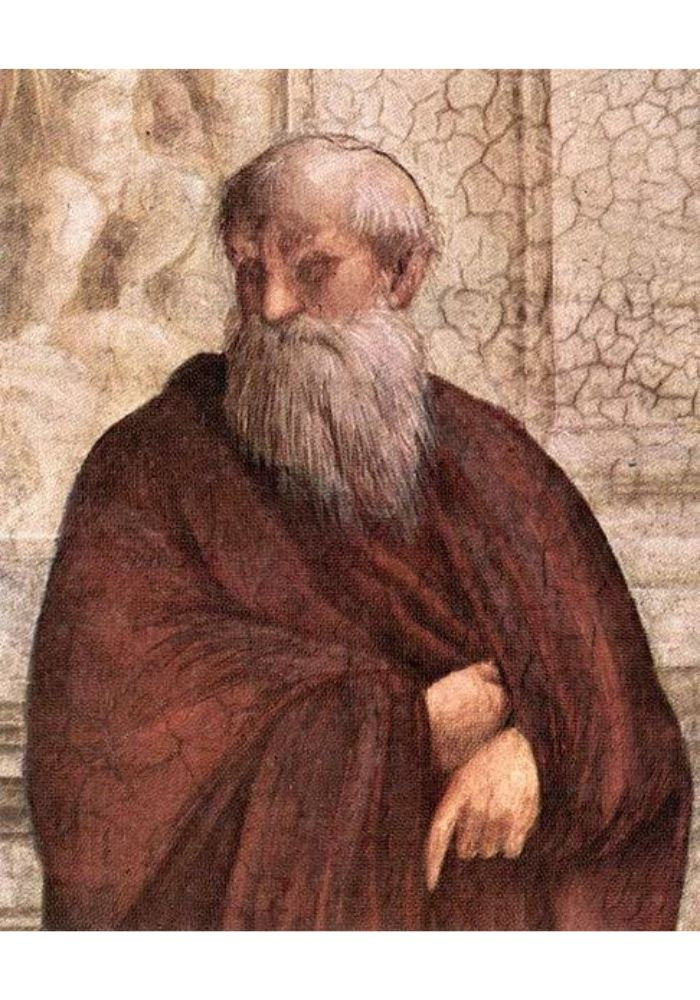
Photo: maroniteseminary.org -
Saint Augustine of Hippo was a theologian, a philosopher, and a Christian thinker. He was successful in his attempt to meld Christian and Classical principles, giving rise to a more potent theological subgenre. In addition, he established the practice of interpretation of sacred texts and strengthened the structure of Christianity in both the Middle and Modern Ages with works like Confessions and City of God.
The Confessions' reappearance after the 12th century had a profound effect on the readers. It depicts the struggles that man faces as he seeks to understand himself in the presence of an all-powerful God. He classifies confessions as all religiously sanctioned behaviors, such as praising God and openly professing one's belief in Him. The Confessions reads more like a prayer, urging the reader to focus inward and experience God's love.
His stories typically center on sin, salvation, God, and the soul. According to him, religion entails a disciplined rejection of all things sensual as well as a focus on the intellect. He so gave up his life in an effort to lead a chaste life and wage a religious fight against all pleasures of the flesh.
Time: 354 - 430
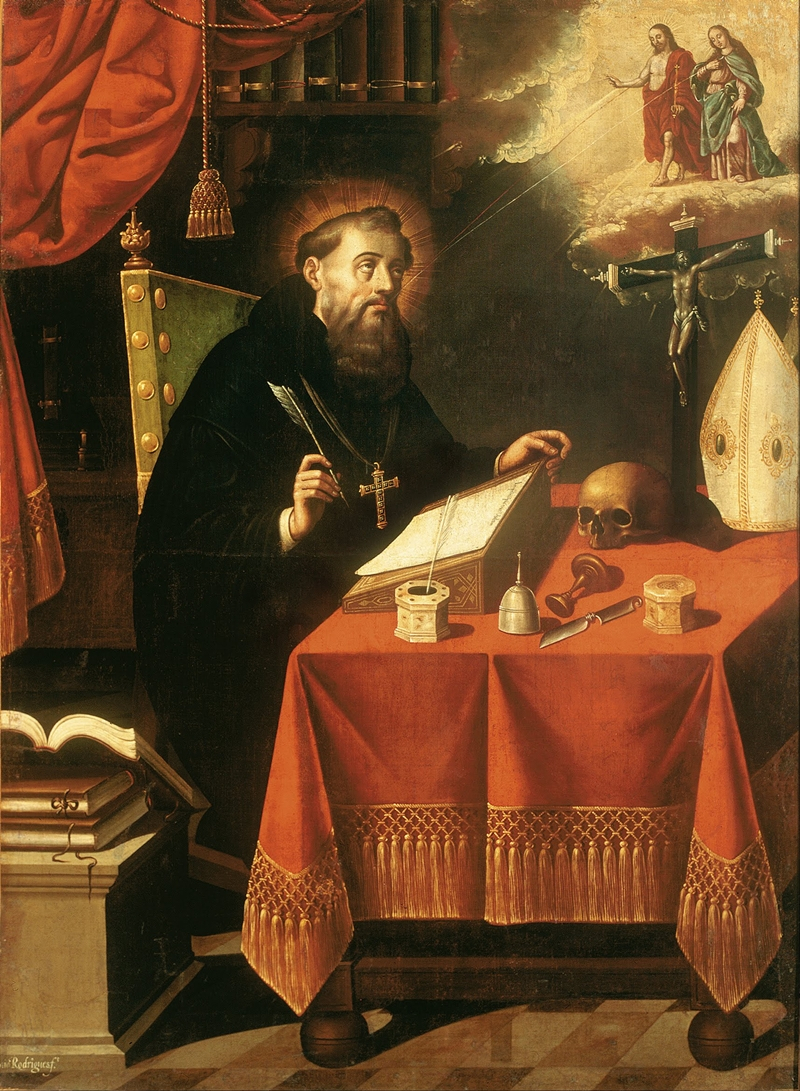
Photo: www.mtgthuduc.net 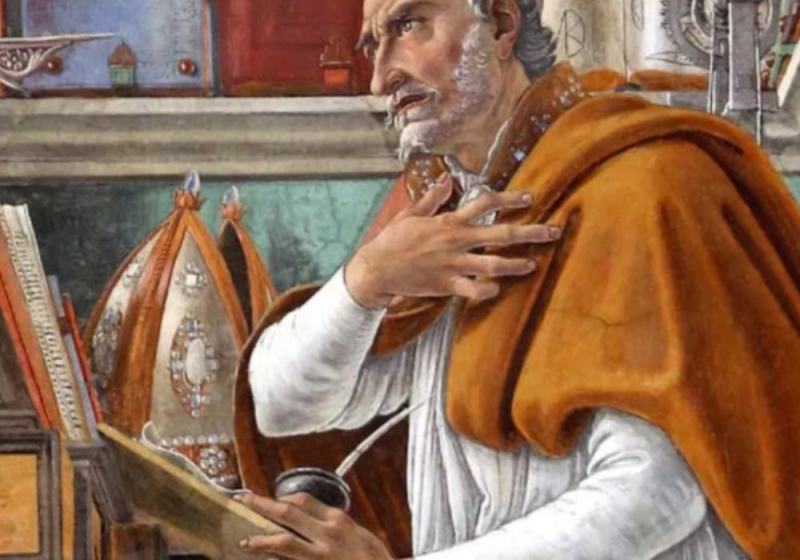
Photo: www.politics-dz.com -
One of the Five Good Emperors of Rome, Marcus Aurelius Antoninus (121 - 180 CE) is a prominent figure in ancient Roman history who represents a period of the Roman Golden Age. He is known as one of the Five Good Emperors of Rome. Antoninus, who also served as emperor, was a significant thinker best known for his book on Stoic philosophy, the Meditations.
His thoughts and observations on Stoicism, a school of philosophy that advocates accepting the present and advocating a worldview in line with nature's purposes, were included in The Meditations. The work of Antoninus, which clarified and established this school of thinking for centuries of scholars and philosophers, has greatly influenced our understanding of stoicism. The Meditations, which were written in Greek, represent the influence of Greco-Roman culture on ancient philosophy.
He rose to the throne from a politically prominent and rich family and quickly established himself as a capable and honorable ruler. He is primarily renowned for using his creativity in every situation and for using tactical revenge in battle. But most significantly, he is credited with writing Meditations, which helped to solidify Stoicism.
His book is made up of his musings, stories, and reflections while he was fervently campaigning and fighting the barbarians. It provides an explanation of the Stoic philosophy, which emphasizes self-control and letting go of dependence on external entities. His narration clearly depicts an obedient ruler who is unconcerned with either short-term or long-term renown. Overall, it captures the zeitgeist and what made a Roman emperor. He originally wrote in Greek, which is evidence of the blending of Greco-Roman and Roman cultures.
All generations and eras can benefit from his book. People are particularly susceptible to it in modern times, nevertheless. It provides an explanation of the Stoic philosophy, which emphasizes self-control and letting go of dependence on external entities. His narration clearly depicts an obedient ruler who is unconcerned with either short-term or long-term renown. Since most people now (including me) own the book, he is credited with simplifying Stoicism, which best calms us amid the suffering that modern complications give.
Time: 121 - 180
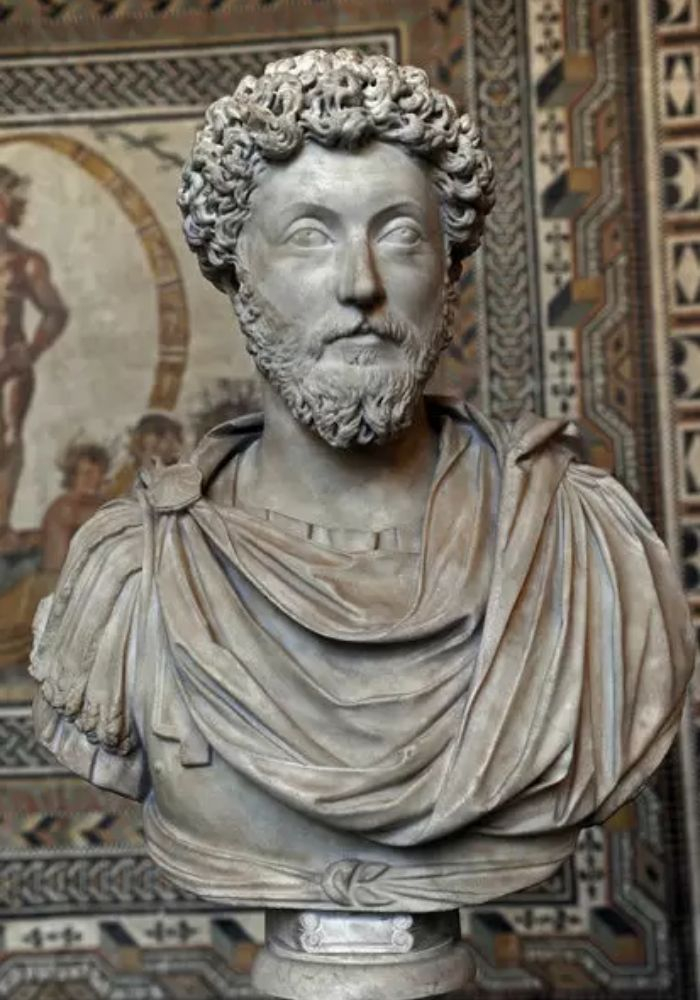
Photo: Mary Evans Prints Online 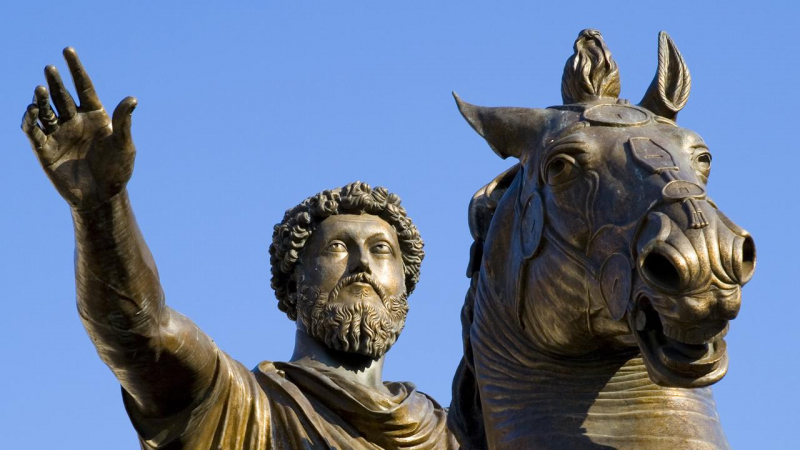
Photo: The Australian -
Politician and philosopher Lucius Annaeus Seneca the Younger was from ancient Rome. He suffered from illness for a large portion of his life, and the Emperors or the Senate attempted to have him executed three times. It took him three attempts before he succeeded in killing himself. Sadly, his disease was what kept him alive.
Seneca promoted the Stoic philosophical tradition throughout his lifetime. Despite having Greek roots, it was quite well-liked in Rome. Seneca did not take his advice seriously, in contrast to many other philosophers. He was one of the richest people in the world despite contending, like the Stoics, that poverty was neither evil nor something to be avoided. Seneca advocated for a private life above a public one, although he was also highly active in it. He insisted that we should live moral lives, but in Rome, he frequently found himself in the center of a scandal.
Having said that, Seneca did make strong cases for Stoicism. His study concentrated mostly on the ethics of the early Stoics, albeit they were also interested in logic, metaphysics, and epistemology to provide a comprehensive philosophical framework. Instead of making statements about the nature of reality, his arguments seem more like life tips.
He was vehemently opposed to the negative effects of rage and other emotions and thought that virtue and simplicity were the keys to a healthy existence. Even if his arguments weren't always sound, his persuasive approach was strong. He is so hailed as the emperor's instructor and a champion of Roman Stoicism.
Time: c. BCE 4 - 65 AD
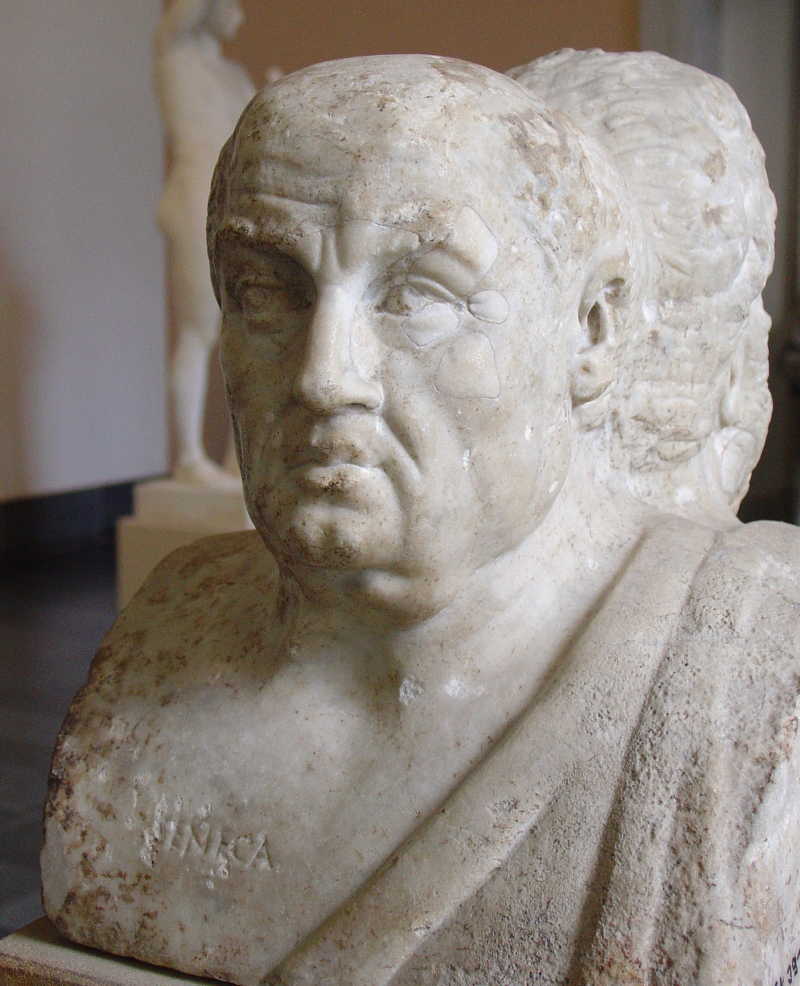
Photo: Wikipedia 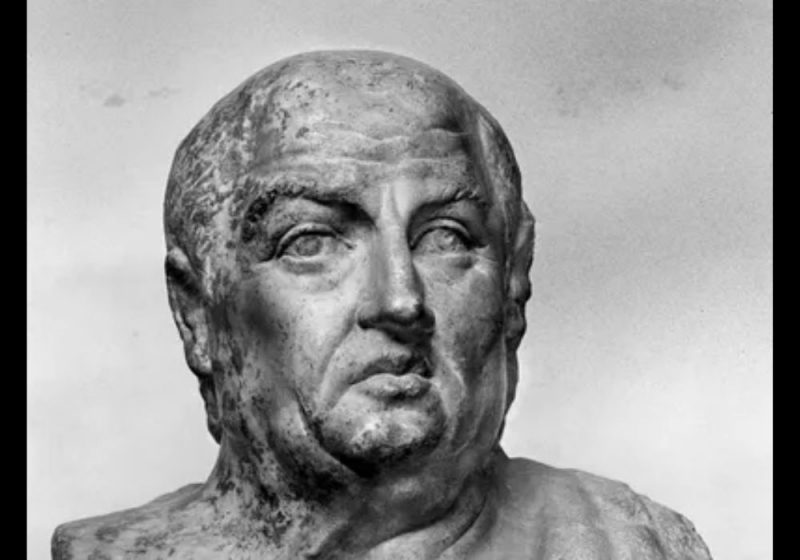
Photo: Encyclopedia Britannica -
Marcus Tullius Cicero was a devoted Roman Republic citizen. It had been a standing institution for more than 500 years by the time he attained its highest position, that of consul, in 63 BCE. One of its final defenders was Cicero.
According to Cicero, we should focus on the good of the Republic rather than our own interests. In addition to others, we have a duty to one another as human beings. Cicero also advised that while determining our duties, we should always assume that the noble and honorable conduct is the same as the beneficial or profitable activity because no dishonest action can ever be conducive to the good of the Republic. This was crucial advice for later thinkers. Unfortunately, Cicero is slain by Octavian soldiers a year after finishing The Officiis.
One of the most well-known individuals in ancient Rome, Marcus Tullius Cicero (106–43 BCE) made a significant impact on politics. Cicero, a powerful orator and statesman, contributed significantly to the growth of the Roman Republic and even served as its consul in 63 BCE.
He produced a larger body of work that includes inquiries into a number of other topics, but his most famous piece, De Officiis or On Duties, revealed his thoughts and beliefs on moral obligations. Cicero blended the philosophies of the Stoics, Academics, Epicurians, and Peripatetics into his writing in an effort to give Rome a wide spectrum of intellectual understanding. He is also one of the famous Roman philosophers.
Time: BC 3 - 43
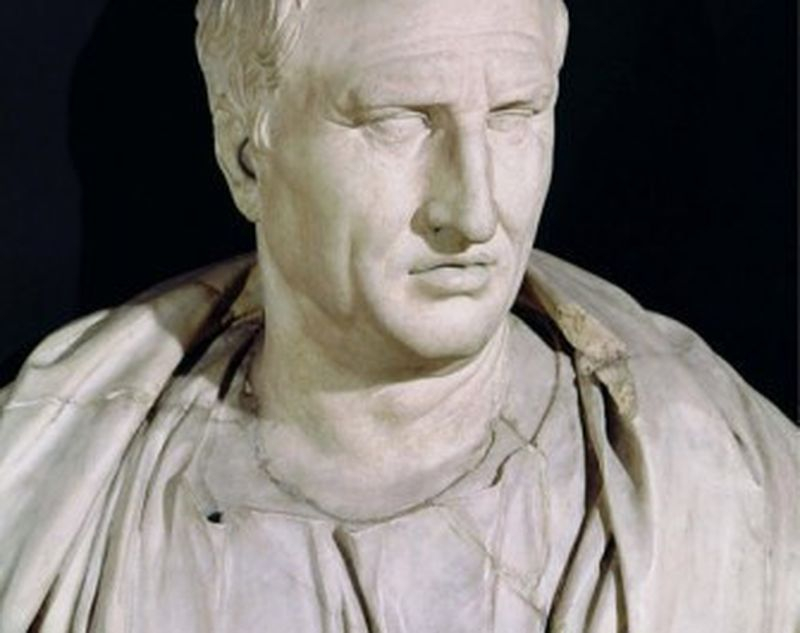
Photo: National Geographic Society 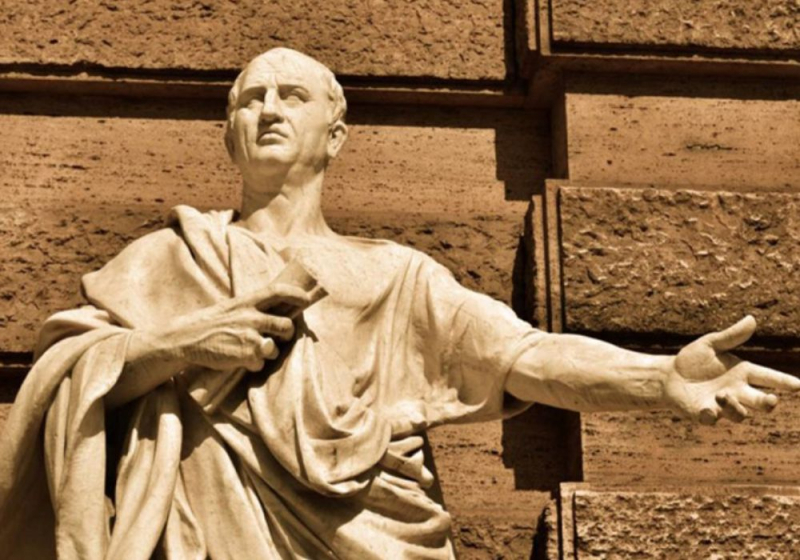
Photo: VOH












